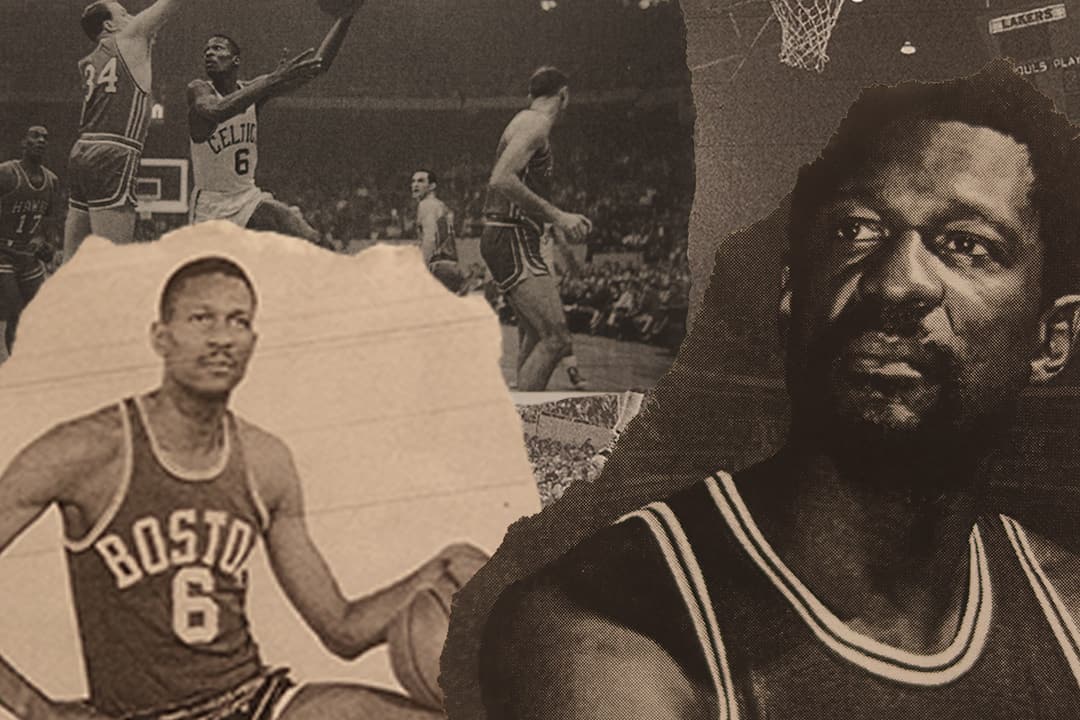Born on February 12, 1934, Bill Russell was a prodigy who just didn’t know it yet. When he was 12 years old, his mother passed away, and Russell became dedicated to his academics. Yet, outside the classroom, he still decided to take up basketball.
Athletically challenged at first, Russell struggled to find playing time at McClymonds High School in Oakland. Nonetheless, through hard work and determination, he developed enough skills to earn him a spot on the starting lineup during his senior year. In college, Russell was able to improve his defensive skills further, which helped him lead his team at the University of San Francisco to the National Collegiate Athletic Association championships in two consecutive years, 1955 and 1956.
In 1956, the Boston Celtics’ head coach, Red Auerbach, selected Russell in the NBA draft based on a recommendation from a fellow peer. Though Auerbach had never seen Russell play, he took a chance. Looking back at Russell’s impact today, it is safe to say that he made the right decision.
During his rookie year, the Celtics won the NBA title. Russell had solidified himself as the league’s first African American superstar — he would win five Most Valuable Player awards between 1958 and 1965. With Russell’s dominance on display, in 1964, the Celtics were the first team to debut a starting lineup that featured all Black players.
Boston went on to win eight consecutive titles from 1959–1966, with Russell leading the team all the way. Notably, in 1966, Russell took over as a player-coach after Auerbach’s retirement, becoming the first Black coach in NBA history. As a player-coach, Russell won two more championships in 1968 and 1969 before retiring as a player. Russell would become the head coach of the Seattle SuperSonics from 1973–1977 and the head coach of the Sacramento Kings from 1987–1988.
One of Russell’s greatest accomplishments was winning 11 NBA titles in 13 seasons — an NBA record and a remarkable success rate that no other NBA player has ever come close to achieving.
For Russell, making shots wasn’t a priority, making him an outlier in a game where offense was typically most recognized. Defense, rebounding, and shot blocking were his specialties, which he developed into an athletic art. With 21,620 career rebounds, he holds the second-highest total of all time.
In addition to his success on the court, Russell was a fervent activist who opposed racism in sports — openly criticizing Celtics fans for their constant racist abuse. His significance as an African American athlete in the NBA increased when he spoke out against the Vietnam War and supported the American Civil Rights Movement.
For all his achievements, Russell was inducted into the Basketball Hall of Fame in 1975, and in 2011, he was awarded the Presidential Medal of Freedom by President Barack Obama. Following his death in 2022, the NBA retired his #6 jersey league-wide — the only player to receive that honour.
Ultimately, Bill Russell’s remarkable career not only redefined the title of being an NBA legend but also left an indelible mark on the sport’s history, paving the way for future generations of athletes and activists alike. Russell’s journey — honing his skills through adversity to become an NBA legend and trailblazing advocate — underscores his unparalleled impact on the game of basketball that everyone loves.


